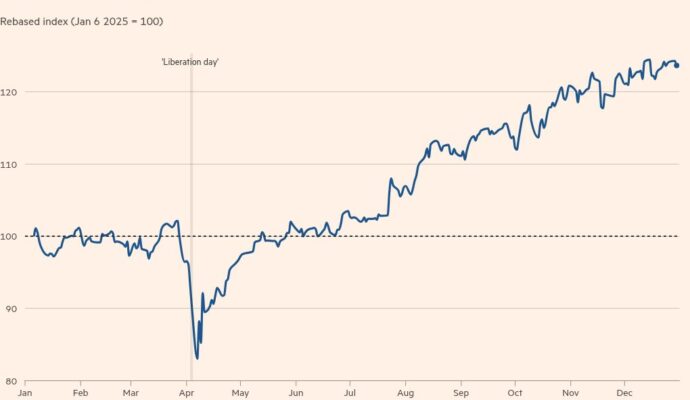Stay informed with free updates
Simply sign up to the Chinese business & finance myFT Digest — delivered directly to your inbox.
China’s low-cost retailer Miniso has released its own collectible toys to compete with Pop Mart’s spiky-toothed doll Labubu, as a wave of Chinese companies rush to develop their own brands.
The company, which produces a range of items including plush toys and homewares, recently unveiled a strategy to develop its own characters and said it had hired nine artists to produce designs.
Miniso’s move into original intellectual property development comes following the success of Labubu, which has turbocharged sales at Chinese rival Pop Mart, whose market value of HK$440bn (US$56bn) is now more than twice that of US toy groups Mattel and Hasbro combined.
One of Miniso’s characters is Wakuku, a furry doll with a unibrow released late last year. Like Pop Mart, the company also sells toys in vending machines and “blind boxes”, mystery boxes with an unknown item from a collection.
“Pop Mart is a very worthy opponent,” Miniso’s chief marketing officer Robin Liu said in an interview at the company’s Guangzhou headquarters, where his office was decorated with plush toys. “[We] are expanding the industry pie together.”
Miniso makes a portion of its Rmb17bn ($2.4bn) in annual sales selling items under licence from other brands, such as Disney and Marvel. But it is now developing its own designs to increase its share of the collectible toy market, including through its subsidiary Top Toy, as it expands overseas.
The collectible toys market has evolved in China from a niche segment to widespread adoption driven by enthusiastic fans, particularly Gen Z women, according to HSBC research.
“Miniso used to be an affordable department store, but today IP design has become our distinguishing feature,” Liu said, adding that its expansion would be “quite aggressive”.
The company’s revenues grew faster than expected in the second quarter of this year to just under Rmb5bn, partly as a result of rising sales at US stores.
Revenue from Top Toy, which sells a range of original and licensed toys, rose about 87 per cent to Rmb402mn over the same period. Miniso said in June it was considering listing the company.
Liu said the US was Miniso’s most important market for expansion, despite tariffs on Chinese goods. He added that the company had increased its US procurement and estimated that it now buys about 40 per cent of its products in the country from American companies.
“Due to tariffs, we will have some price increases,” Liu said. “Our products cost 10 to 20 dollars, so even with the price increase, it’s still within an affordable range. What’s more, the more trendy and iconic a product is, the less price-sensitive consumers are.”
Yet Miniso still has to produce a hit as popular as Pop Mart’s Labubu. Lina Yan, an analyst at HSBC Global Investment Research, said most US consumers still viewed Miniso as a low-cost retailer of plush toys.
“Chinese brands are certainly building their visibility among US consumers,” said Yan. “However, at the country level, the US market has not yet become a major profit contributor to the group.”
Miro Li, founder of Shenzhen-based marketing consultancy Double V Consulting, said Chinese brands had not penetrated the US the way that Japanese or Korean companies had.
“Geopolitical tensions are one factor,” she said. “Chinese culture has not yet reached the same level of global influence.”
At home in China, the market for collectibles has also become increasingly competitive.
“Replicating Labubu’s success is no easy feat — developing original IPs takes time, money, and a bit of luck,” said Li.
